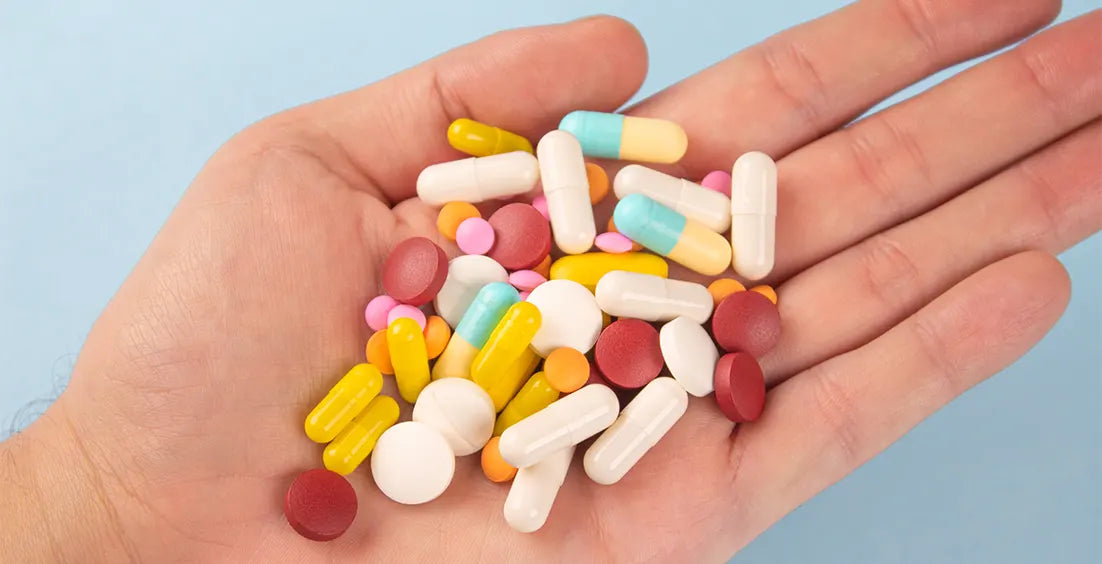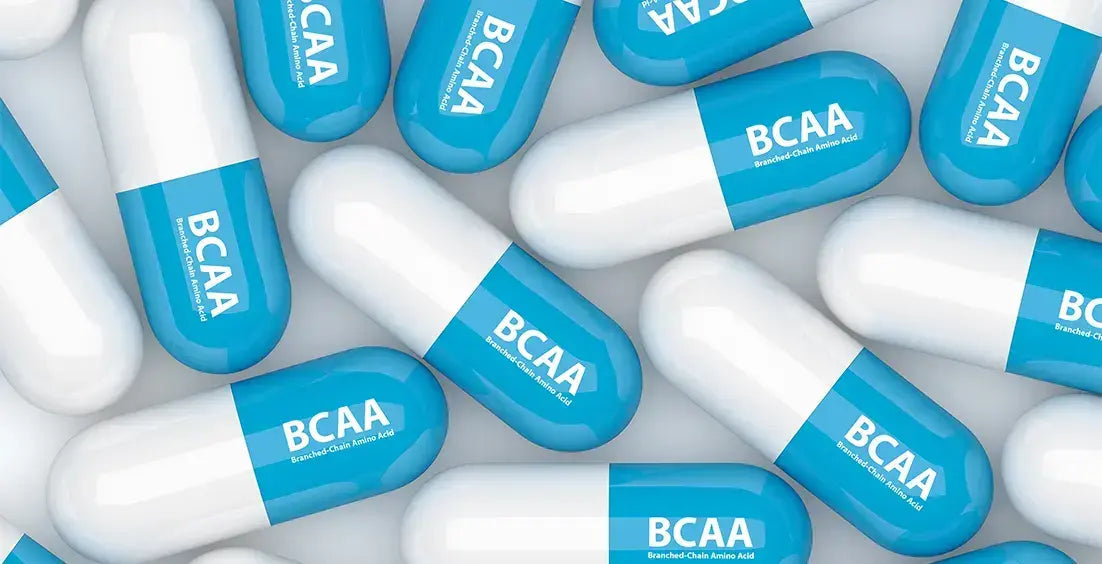Top Prostate Supplement for BPH and Inflammation
In this article, learn about prostate health symptoms like BPH and inflammation, supplements that can help manage them, and foods to include or avoid for better prostate health.

Table of contents
Men's health is a journey of continuous learning and care. As men age, their bodies go through many changes that require attention and understanding. The prostate gland is a crucial part of male health that often gets overlooked. Many men don't know much about this small but important part of their body.
Prostate issues are more common than most people realize. Millions of men worldwide experience challenges related to prostate health every year. These challenges can impact daily life and overall well-being in significant ways.
Understanding prostate health is the first step toward taking control of your personal wellness and maintaining a high quality of life.
In this article, we will delve into the top prostate supplements for managing BPH and reducing inflammation.
What is BPH?
The prostate is a small gland found in men that plays an important role in reproductive health. As men grow older, this gland can start to grow larger. This natural growth is called Benign Prostatic Hyperplasia, or BPH for short. It's important to understand that BPH is not cancer.
It's a common condition that happens to many men as they age. The prostate sits just below the bladder and surrounds the urethra, which is the tube that carries urine out of the body. When the prostate grows, it can press against the urethra, causing various urinary symptoms that can be uncomfortable and frustrating.
Diving Deep into BPH Symptoms
Men experiencing BPH often notice changes in their urination patterns. You might find yourself getting up multiple times during the night to use the bathroom. Some men struggle to start urinating or have a weak urine stream. Others feel like their bladder is never completely empty, which can be both annoying and uncomfortable.
These symptoms can slowly develop over time, making them easy to miss at first. Some men might feel embarrassed to discuss these changes, but it's crucial to understand that BPH is a normal part of aging for many men. The symptoms can vary from mild to more severe, impacting daily life and overall comfort.
Understanding Prostate Inflammation
Prostate inflammation, medically known as prostatitis, is different from BPH but can be equally challenging. This condition occurs when the prostate becomes swollen and irritated. It can be caused by various factors, including bacterial infections, chronic stress, or other underlying health issues.
Unlike BPH, which is a natural enlargement, inflammation can happen at any age and may come on more suddenly. The prostate can become tender and swollen, causing discomfort and various urinary symptoms. Some men might experience this condition multiple times throughout their lives.
Symptoms of Prostate Inflammation
The symptoms of prostate inflammation can be quite uncomfortable and disruptive. Men might experience pain in the pelvic area that can radiate to the lower back and groin. Urination can become painful or difficult, with a burning sensation that makes going to the bathroom a dreaded experience.
Some men report feeling like they have the flu, with general body aches and fatigue. Sexual activity might become painful, and there could be discomfort during ejaculation. These symptoms can come and go, making them particularly frustrating. Some men might also notice cloudy or bloody urine, which can be alarming and should prompt a visit to a healthcare provider.
Traditional Medical Approaches to Prostate Issues
Doctors have several approaches to managing prostate-related problems. Prescription medications are often the first line of treatment. Alpha-blockers can help relax muscles around the prostate, making urination easier. Another type of medication called 5-alpha reductase inhibitors can slow down prostate growth.
For inflammation caused by infections, antibiotics might be prescribed. In more severe cases where medications don't provide relief, doctors might consider surgical options.
These treatments aim to improve urinary function, reduce discomfort, and prevent further complications. Each treatment plan is personalized based on the individual's specific symptoms, overall health, and medical history.
The Power of Supplements in Prostate Health
Nutritional supplements have gained popularity as a natural approach to supporting prostate health. These supplements work by providing essential nutrients that can help reduce inflammation, support healthy prostate size, and improve overall urinary function.
Many men find that supplements can complement traditional medical treatments. They offer a way to take an active role in managing prostate health through nutrition. The goal of these supplements is to support the body's natural processes and potentially slow down the progression of prostate-related issues.
Ingredients in Prostate Supplement
Saw Palmetto: A Natural Approach
Saw palmetto is a herbal extract that has been used for many years to support prostate health. Derived from a type of palm tree, this supplement is believed to help block the conversion of testosterone, which can contribute to prostate growth.
Many men report improvements in urinary symptoms when taking saw palmetto. It may help reduce nighttime urination and improve overall urinary comfort. While research is ongoing, many men find this natural supplement to be a helpful addition to their prostate health routine.
READ MORE - Best Saw Palmetto Supplement for Prostate Health
Pumpkin Seed Oil: Nature's Prostate Defender
Pumpkin seed oil is rich in nutrients that support prostate health. It contains essential fatty acids and compounds that may help block hormones contributing to prostate enlargement. The oil is packed with antioxidants and minerals that can support overall prostate function.
Many men appreciate pumpkin seed oil as a natural approach to managing prostate health. It may help reduce inflammation and support healthy urinary function. The oil can be taken as a supplement or incorporated into the diet.
Beta-Sitosterol: Supporting Prostate Wellness
Beta-sitosterol is a plant-based compound that has shown promise in supporting prostate health. It may help improve urinary symptoms associated with BPH. Many men report better urinary flow and reduced nighttime bathroom trips when using this supplement.
The compound works by potentially reducing inflammation and supporting healthy prostate cell function. While more research is needed, beta-sitosterol is considered a promising natural approach to prostate support.
Lycopene: The Antioxidant Protector
Lycopene is a powerful antioxidant found in tomatoes and other red fruits. It has gained attention for its potential benefits in supporting prostate health. The compound may help fight inflammation and reduce the risk of prostate-related issues.
Many men incorporate lycopene-rich foods or supplements into their diet as a way to support overall prostate wellness. Its natural properties make it an attractive option for those looking for nutritional support.
Essential Minerals: Zinc, Selenium, and Vitamin D
These minerals play crucial roles in maintaining prostate health. Zinc supports immune function and may help reduce inflammation. Selenium is another important mineral that can support cellular health.
Vitamin D is essential for overall health and may play a role in prostate function. Together, these nutrients provide comprehensive support for the prostate gland. Many men find that ensuring adequate intake of these minerals can contribute to overall prostate wellness.
How To Shrink An Enlarged Prostate Naturally
Diet's Role in Prostate Wellness
What you eat can significantly impact prostate health. A diet rich in fruits, vegetables, and whole grains can help reduce inflammation and support overall prostate function. Staying hydrated is also crucial for maintaining urinary and prostate health.
Some men find that certain dietary changes can help manage prostate-related symptoms. Focusing on nutrient-dense foods and maintaining a balanced diet can be a powerful way to support prostate health.
Foods to Avoid
Some foods may potentially worsen prostate symptoms. It's often recommended to limit caffeine and alcohol consumption. Processed foods, refined sugars, and excessive red meat might negatively impact prostate health.
Some men find that reducing dairy intake helps manage their symptoms. While dietary needs vary from person to person, being mindful of food choices can be an important part of prostate health management.
Conclusion
Prostate health is an ongoing journey that requires attention and care. By understanding the signs, making informed choices, and supporting your body through nutrition and lifestyle, you can maintain optimal prostate wellness. Remember that every man's body is unique, and what works for one person may not work exactly the same for another.
Always consult with a healthcare professional for personalized advice. They can provide guidance tailored to your specific health needs and medical history. Your prostate health matters, and taking a proactive approach can help you maintain your quality of life as you age.
About WOWMD Staff
The WOWMD Staff category features a diverse team of writers, each bringing specialized knowledge in areas such as nutrition, fitness, wellness, and more. Articles in this category benefit from insights provided by multiple experts. All content is peer-reviewed and regularly updated to ensure compliance with our editorial standards.
References
- Benign prostatic hyperplasia (BPH) - Symptoms and causes - Mayo Clinic https://www.mayoclinic.org/diseases-conditions/benign-prostatic-hyperplasia/symptoms-causes/syc-20370087
- Selenium - StatPearls - NCBI Bookshelf https://www.ncbi.nlm.nih.gov/books/NBK557551/
- Jpsr10071835.pdf https://www.jpsr.pharmainfo.in/Documents/Volumes/vol10Issue07/jpsr10071835.pdf
- (PDF) Effect of β-sitosterol as Inhibitor of 5α-reductase in Hamster Prostate https://www.researchgate.net/publication/8938364_Effect_of_b-sitosterol_as_Inhibitor_of_5a-reductase_in_Hamster_Prostate
- Are the health attributes of lycopene related to its antioxidant function? - PMC https://pmc.ncbi.nlm.nih.gov/articles/PMC2745920/
- A comprehensive review of the role of zinc in normal prostate function and metabolism; and its implications in prostate cancer - PubMed https://pubmed.ncbi.nlm.nih.gov/27132038/
- Unlocking the potential-vitamin D in prostate cancer prevention - PMC https://pmc.ncbi.nlm.nih.gov/articles/PMC10915943/
- Serum selenium levels and prostate cancer risk: A MOOSE-compliant meta-analysis - PMC https://pmc.ncbi.nlm.nih.gov/articles/PMC5293444/
- Use of saw palmetto (Serenoa repens) extract for benign prostatic hyperplasia https://pmc.ncbi.nlm.nih.gov/articles/PMC6859144/
Evidence Based Research
This WOWMD content has been reviewed, as well as checked for facts, so as to guarantee the best possible accuracy.
We follow a strict editorial policy, especially related to the sources we use. Our articles are resourced from reputable online pages, with research drawn from academic institutions and peer-reviewed studies. You can click on the numbers in the parentheses (1, 2, etc.) and check out those references.
The feedback form on this page can be used to report content that is not accurate, up-to-date or questionable in any manner.
We do NOT intend for the information presented through our articles to replace the medical relationship with a qualified physician, nor does it represent specialized advice.


 Skin Detoxification Bundle
Skin Detoxification Bundle Complete Weight Loss Bundle
Complete Weight Loss Bundle Heart Care Bundle
Heart Care Bundle Better Immunity Bundle
Better Immunity Bundle  Men's Immunity & Prostate Health Bundle
Men's Immunity & Prostate Health Bundle Stress + Energy + Wellness Combo
Stress + Energy + Wellness Combo  Energy Booster Combo
Energy Booster Combo Natural Skin Care Bundle
Natural Skin Care Bundle Workout Supplements Combo
Workout Supplements Combo Cognitive Health & Vision Combo
Cognitive Health & Vision Combo Joint Health Support Combo
Joint Health Support Combo
















 By WOWMD Staff
By WOWMD Staff